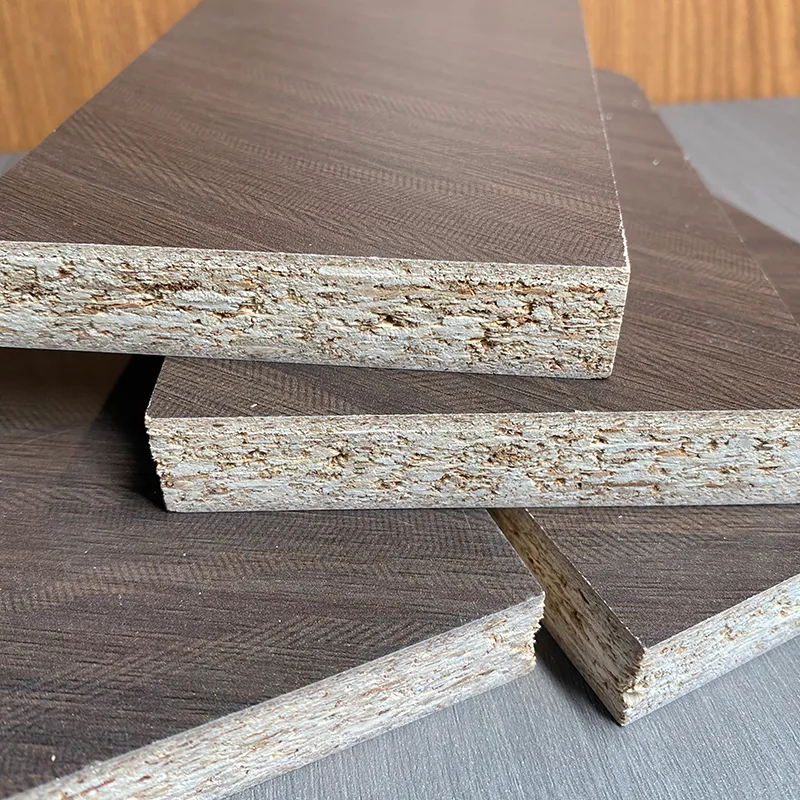The weight of a plywood sheet is determined by its density, which is calculated using the formula:
Weight = Density × Volume = Density × (Length × Width × Thickness)
While the plywood’s size remains fixed, its density largely influences the weight. Let’s explore the factors affecting plywood density and understand how they contribute to the overall weight of a sheet.

Plywood Density
Plywood density typically ranges between 340 kg/m³ and 700 kg/m³, and several key factors influence it:
1. Core Veneer Types
The type of wood used as the core veneer significantly impacts density. Common types include:
- Poplar Plywood: Density is approximately 520 kg/m³, similar to pine plywood.
- Finger Joint Core Plywood: Mixed with poplar and hardwood, with a higher moisture content, it weighs around 550 kg/m³.
- Eucalyptus Plywood: Typically ranges from 570 to 600 kg/m³.
- Birch Plywood: Denser and heavier, with a density of 650–700 kg/m³.
- Benuang Core Plywood: Ultra-lightweight plywood made from the Indonesian wood Octomeles sumatrana, with a density of 340–380 kg/m³.
2. Glue Type and Amount
The type and amount of glue used in plywood manufacturing also affect its weight:
- Urea-Formaldehyde Glue: Commonly used, lightweight glue.
- WBP Phenolic Glue: Heavier, adding about 10 kg/m³ compared to urea glue.
Additionally, applying more glue enhances strength but increases the weight of the board.
3. Compression Ratio
The compression ratio is the ratio of the veneer thickness to the finished plywood thickness. Structural plywood typically has a higher compression ratio than non-structural plywood, resulting in increased density.
- Non-Structural Eucalyptus Plywood: Density is about 580 kg/m³.
- Structural Eucalyptus Plywood: Density can reach 600 kg/m³.
4. Moisture Content
Moisture levels in the board influence weight, with fluctuations causing a variation of about 5–10 kg/m³. Proper drying is crucial to ensure consistency.
Plywood Volume and Weight
Plywood dimensions, combined with density, determine the weight of each sheet. Here’s a breakdown:
| Plywood Size | Volume Per Sheet (m³) | Sheets Per Cubic Meter (m³) |
|---|---|---|
| 1220 × 2440 × 18mm | 0.0536 | 18.70 |
| 1220 × 2440 × 15mm | 0.0447 | 22.40 |
| 1220 × 2440 × 12mm | 0.0357 | 28.00 |
| 1220 × 2440 × 9mm | 0.0268 | 37.33 |
| 1220 × 2440 × 6mm | 0.0179 | 56.00 |
| 1220 × 2440 × 4mm | 0.0119 | 84.00 |
Quick Reference: Common Plywood Weights
| Plywood Size | Core Veneer Species | Weight Per Sheet (kg) |
|---|---|---|
| 1220 × 2440 × 18mm | Poplar | 28 |
| 1220 × 2440 × 18mm | Pine | 28 |
| 1220 × 2440 × 18mm | Birch | 37 |
| 1220 × 2440 × 18mm | Finger Joint | 29 |
Key Insights
- Lightest Plywood: Benuang core plywood is the lightest option, making it ideal for projects where reduced weight is critical.
- Heaviest Plywood: Birch plywood, with its high density, is suited for applications requiring strength and durability.
- Moisture and Glue Factors: Both the type of glue and moisture content play a significant role in determining the final weight of plywood sheets.
When selecting plywood for your project, consider these factors to balance weight, durability, and functionality.


